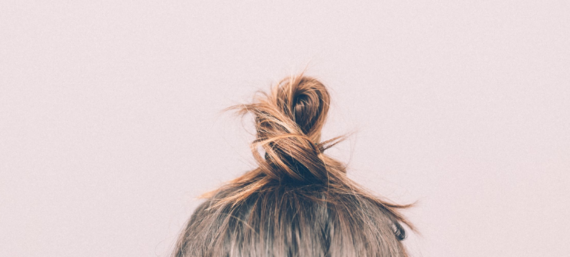 While postpartum hair loss is a common problem for women after giving birth, it can still be emotionally distressing to lose a lot of hair so quickly.
While postpartum hair loss is a common problem for women after giving birth, it can still be emotionally distressing to lose a lot of hair so quickly.
The loss of hair is often caused by drastic hormonal changes along with stress and lack of sleep. These problems affect most new mothers, and losing hair is one of the many changes that can occur in the first few weeks or months after having a baby.
Fortunately, there are several things that you can do to encourage new hair growth while maintaining the beauty of the remaining hair on your scalp. Here are some lifestyle changes to make to reduce postpartum hair loss.
Lifestyle Change 1: Change Your Diet
It is essential to improve your daily diet to ensure that your body is receiving enough nutrients to grow healthy hair. New mothers who are breast-feeding their babies must consume more calories, and they should choose healthy fruits and vegetables.
Lifestyle Change 1: Change Your Diet
It is essential to improve your daily diet to ensure that your body is receiving enough nutrients to grow healthy hair. New mothers who are breast-feeding their babies must consume more calories, and they should choose healthy fruits and vegetables.
Begin your day with a complete breakfast that includes protein such as scrambled eggs or sausage along with whole-wheat toast or a bowl of oatmeal. Add fresh fruit or jam to your toast or oatmeal, and also, drink 100 percent grapefruit or grape juice.
For a snack before lunch, you can eat an apple or a wedge of cheese, and you can also have this type of snack in the afternoon.
At lunch, eat a green leafy vegetable salad that includes strips of lean chicken breast along with tomato wedges and green bell pepper chunks.
When you have dinner, eat another serving of protein along with vegetables or whole-grain pasta.
Lifestyle Change 2: Improve Your Body’s Blood Circulation
As you are recovering from pregnancy and birth, you may feel too sore to exercise, but there are other ways to improve your body’s blood circulation. Increasing the blood flow of your body will also improve the condition of your scalp.
Lifestyle Change 2: Improve Your Body’s Blood Circulation
As you are recovering from pregnancy and birth, you may feel too sore to exercise, but there are other ways to improve your body’s blood circulation. Increasing the blood flow of your body will also improve the condition of your scalp.
With additional blood flow to your scalp, your hair follicles are enriched with the nutrients in your body, improving the strength of your hair strands.
Having a massage is one of the best ways to increase your body’s overall blood circulation, and you can have professional massages at a day spa. You can also massage your own face, neck and scalp while washing and conditioning your hair to improve your skin’s blood flow.
Lifestyle Change 3: Take Your Vitamins
In addition to eating a healthy diet each day, you can take an assortment of dietary supplements. If you are breast-feeding your infant, then discuss your dietary supplements with your physician first. You can find multivitamins that contain a variety of vitamins and minerals, but there are also individual dietary supplements. Here are some of the best nutrients for improving the condition and growth of new hair:
• Zinc
• Iron
• Niacin
• Biotin
• Vitamin C
While shopping for dietary supplements, look for products that are formulated for healthy hair growth.
Lifestyle Change 3: Take Your Vitamins
In addition to eating a healthy diet each day, you can take an assortment of dietary supplements. If you are breast-feeding your infant, then discuss your dietary supplements with your physician first. You can find multivitamins that contain a variety of vitamins and minerals, but there are also individual dietary supplements. Here are some of the best nutrients for improving the condition and growth of new hair:
• Zinc
• Iron
• Niacin
• Biotin
• Vitamin C
While shopping for dietary supplements, look for products that are formulated for healthy hair growth.
If none of these diet changes work for you, ask your doctor about hair growth procedures like laser therapy or PRP hair growth treatments, which also offer minimally-invasive alternatives.
Lifestyle Change 4: Get Enough Sleep
It isn’t easy to get enough sleep after having a baby because your infant requires feeding frequently. In addition, you might have a fussy infant who cries a lot, making it difficult to sleep at night or to take naps.
Lifestyle Change 4: Get Enough Sleep
It isn’t easy to get enough sleep after having a baby because your infant requires feeding frequently. In addition, you might have a fussy infant who cries a lot, making it difficult to sleep at night or to take naps.
If you are accustomed to long stretches of sleep time, then this will change after your baby is born, so you must find ways to go to sleep quickly while your new infant is sleeping.
It is vital to create a restful bedroom that has a supportive mattress and box spring on the bed. When you want to sleep, make sure that the room is dark and quiet. In addition, have a bedroom that is the correct temperature to make sleeping easier.
With higher quality sleep, your body can heal itself by producing helpful hormones that will repair your scalp’s hair follicles.
Lifestyle Change 5: Choose Different Hair Care Products
The hair care products that you used during your pregnancy may not work well after you have your baby.
Lifestyle Change 5: Choose Different Hair Care Products
The hair care products that you used during your pregnancy may not work well after you have your baby.
You may have had an oily scalp or hair while you were pregnant, but if you use dandruff or oil-stripping shampoo after giving birth, then you can dry your hair strands and scalp, leading to additional hair loss.
Examine your hair closely to determine if you now have drier hair that breaks easily, and if you do, then begin to use hair care products that will moisturize your scalp and hair.
In addition to shampooing your hair with a gentler product, you may need to deep condition your hair and scalp with products that you leave on your hair for several minutes.






